Warwick voices for Iran’s silenced women
Warwick. Sara Rutkevitz, of Chester, organized a demonstration in Warwick in support of women’s rights in Iran after a young woman there was arrested for not wearing a hijab and died in custody.
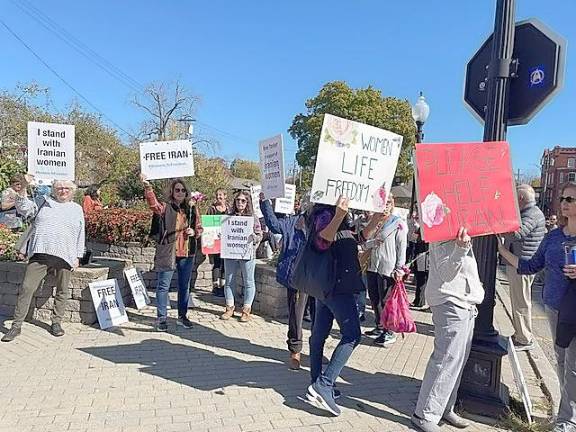
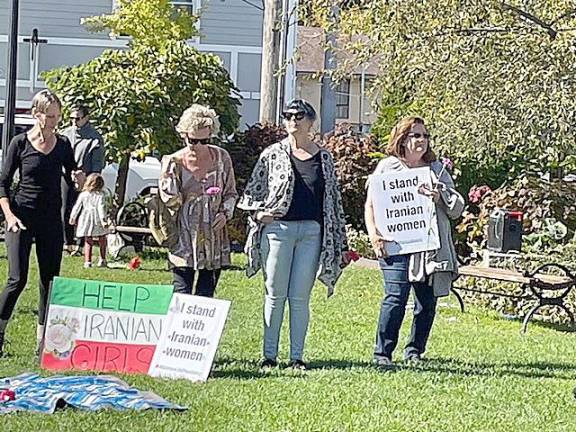
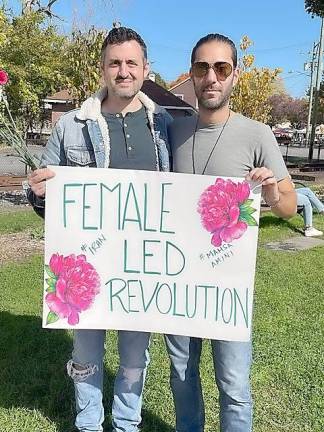
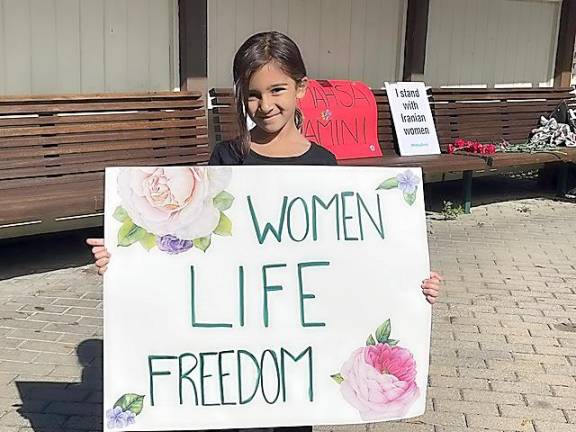
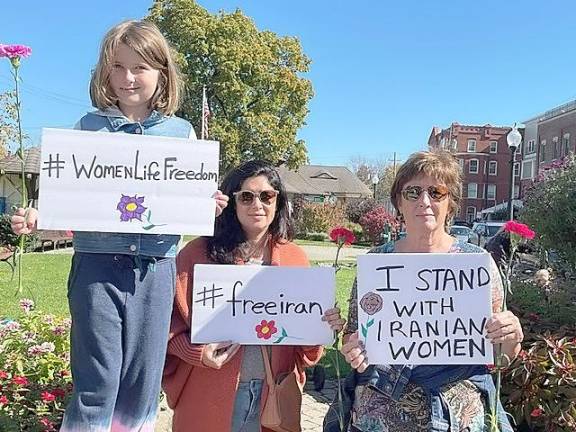

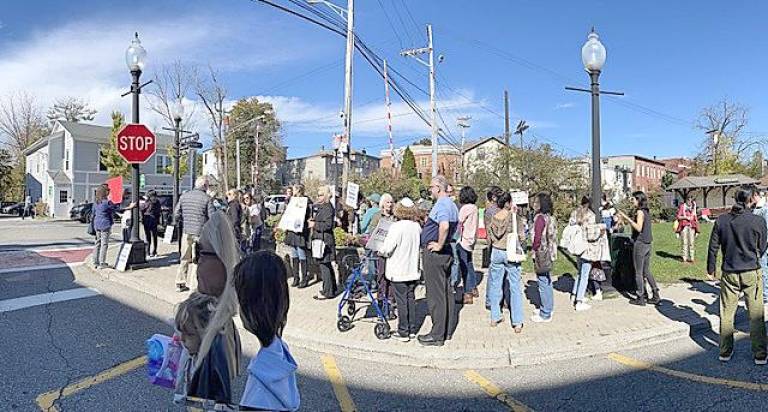

Forty people gathered at Railroad Green on Sunday afternoon to speak on behalf of women in Iran, who currently are the object of a violent government crackdown that includes arrests and imprisonment, as they refuse to cover their hair with the hijab traditional Muslim headscarf, in reaction to a young Kurdish woman, Mahsa Amini, who died in police custody recently under questionable circumstances.
The sunny, mid-autumn day in the Village of Warwick matched the generally jubilant mood of the demonstrators, as music played, children made giant soap bubbles, and people of various ages held signs aloft in solidarity with Iran’s women.
Rabbi Rebecca Shinder, spiritual leader of Florida’s Temple Beth Shalom, along with her spouse and several members of her congregation, explained why they were there: “It is absolutely a Jewish value to stand in solidarity with oppressed people. We celebrated the Jewish holiday of Shemini Atzeret yesterday morning with our Torah scrolls; we said we were going to celebrate Torah in the morning and come to the demonstration to do Torah...Standing for what’s right is a Jewish value.”
Demonstration inspiration
The event initiator, Sara Rutkevitz, is a Chester resident and mother, as well as an immigrant originally from Iran.
Rutkevitz left Iran as a child refugee, along with her mother and siblings, not long after the Iranian revolution. Their departure was prompted by the beating of her 10-year-old brother by school officials when he wore pants they they considered inappropriate. The family moved to Canada, and Rutkevitz came to the United States as an adult in 2014 when she met and married her husband.
She has dual American/Canadian citizenship but does not hold an Iranian passport.
“I don’t think I could go back under the current regime, given I married an Israeli Jew,” she said.
Rutkevitz saw the increasing turmoil in her country of origin and decided she needed to do something.
“All my friends on social media were asking friends to post...to show non-Iranians why they should care,” she said.
Although she could have attended protests in New York City, Rutkevtiz said, she wanted to bring attention in her community to the Iranian women’s plight.
“Look at the turnout, at all the people who care!” she said.
While she still has family members – “aunts and uncles and cousins” – back in Iran, many of them are older and feel they have no choice but to “accept the regime,” she said. So she is not as concerned for them as she is for the younger members of society there.
She feels that Amini was and other young Iranian women are her “family,” connected in their desire for change and freedom. Rutkevitz decided to use her freedom to be their voice, noting that it’s important for those who are able to speak on behalf of those who can’t, as a day may come “when we’re not strong, and we’ll need to rely on someone else.”
“I want to celebrate this newfound hope. This level of unity of the Iranian people is unprecedented,” she said.
She’s also heartened by the solidarity of women: “We’re sick of being ‘shushed’...The world is sick” because women are suppressed. Her goal is to “do everything to make women’s voices louder.”
Rutkevitz used social media – “Mommy groups” – to spread the word, and had an immediate response: “Signs (were) dropped off at my house...flowers were delivered...Moms are pretty gangster.”
She believes that people back in Iran will see the demonstrations of support here and elsewhere: “People will see that you don’t have to care about this issue or be a woman to care about women’s rights – women’s rights are human rights.”
The Iranian regime has been in power for 43 years, but its leaders, Rutkevitz said, keep their citizens in poverty, despite having the world’s second largest oil supply.
She added that Iran’s current government has nothing to offer its people: “Iran is about three things: ‘Death to Israel, Death to America’, and veiling women.”
But this issue, she continued, is “not about a nuclear deal or the economy: It’s about basic human rights. The ability to not be veiled...to kiss your partner in the street...to not be arrested for showing your ankles...Not needing your husband’s or father’s permission for anything. It’s things like this that make us appreciate the basic freedoms we enjoy. You can brainwash people, but you can’t ‘heartwash’ them.”
You can brainwash people, but you can’t ‘heartwash’ them. - Sara Rutkevitz